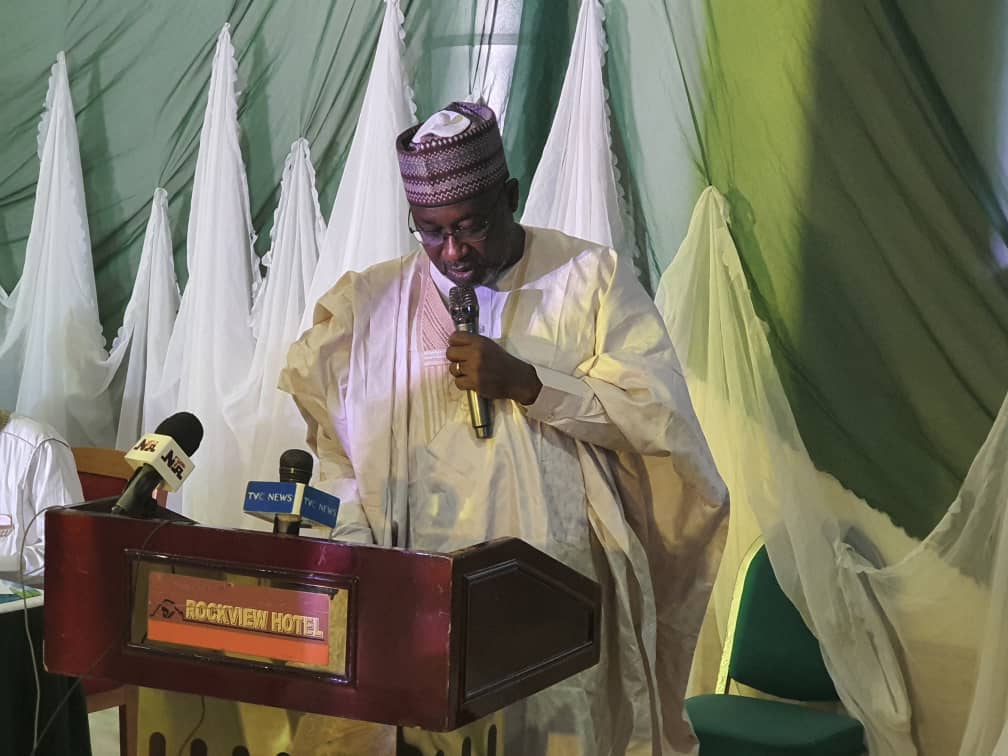By YANGE IKYAA
With a total of 408 dams which are built for different uses across Nigeria, the West African nation ranks among countries with the highest number of dams on the continent.
According to official figures from Federal Government documents seen by The Africanscholar, Nigeria’s over 400 dams include 142 large dams, 59 medium dams and 207 small dams.
In order to ensure availability of water for various purposes, the Federal Government
has constructed hundreds of dams over the years.
This, it has done through the federal ministry of water resources, state and local governments, as well as through partnerships with private entities or corporate organizations and individuals.
On Tuesday, August 27, the minister of water resources, Engr. Suleiman Adamu, launched three books in Abuja, namely “Compendium and Digital Map of Dams in Nigeria, Compendium of Irrigation Schemes in Nigeria, and Code of Practice for Dam Reservoir Operation in Nigeria.” At the same event, he also launched a documentary in book and video formats, entitled “Swimming Against the Tides.”
In his Keynote address, the minister informed the audience that the history of dam construction in Nigeria dates back to 1918 with the construction of single purpose Kwall Stream and Ngell Dams in the present-day Plateau State, which are used for hydropower generation.
Since then, a good number of dams of various sizes and purposes have been built across the country up to the present day.
On assumption of office in 2015, Engr. Adamu directed that an inventory of all dams and irrigation schemes in Nigeria be undertaken, and the exercise eventually culminated in the production of two books, the “Compendium and Digital Map of Dams in Nigeria” and the “Compendium of Irrigation Schemes in Nigeria.”
The Compendium and Digital Map of Dams in Nigeria is a national registry of all dams in the country and is in conformity with the standard of the International Commission on Large Dams (ICOLD). The data provided in the book is of immense value to dam owners and operators, as well as to other interested parties. It will also attract and guide future investments in Nigeria’s water sector.
A total of 408 Dams are documented in the compendium, including 142 large dams, 59 medium dams and 207 small dams.
On irrigation schemes, the Engr. Adamu said that his ministry was already organising irrigation farmers into “water user associations” or actively strengthening the associations where they are already in existence.
The purpose of this exercise is to establish the irrigation farmers into formidable groups as partners of government and to build their capacities for effective operation and maintenance of available irrigation infrastructure.
Altogether, 323 irrigation schemes are documented in the compendium on irrigation across the six geo-political zones of Nigeria. They are classified based on ownership status, scale, system, type and method of scheme, as well as water source.
The documentary, “Swimming Against the Tides” is a detailed documentary evidence of very significant milestones recorded in the past five years of Engr. Adamu as Nigeria’s minister of water resources.
In his goodwill message, the director general of National Water Resources Institute, Kaduna, Prof. Emmanuel Adanu, tasked the audience on reading the Code of Practice for Dam Reservoir Operation in Nigeria to enable them expand their knowledge on sustainability of all hydrological facilitate available to them.
The permanent secretary in the water resources ministry, who was represented by the director, department of water supply and PPP, Engr. Benson Ajisegiri, stated that the ministry places emphasis on integrated reservoir operations and dam safety, as well as participatory management of irrigation schemes by the local farmers.
She further noted that the concept of integrated water resources management is very prominent in the Water Resources Bill, where it specifically advocates for an optimal strategy in the development, operation and management of water facilities, including dams and irrigation schemes.
According to Mrs Kenechukwu Offie, who is the
director of press and public relations in the ministry of water resources,
the highpoint of the ceremony was the public presentation of the compendiums to Nigerians by the minister.


